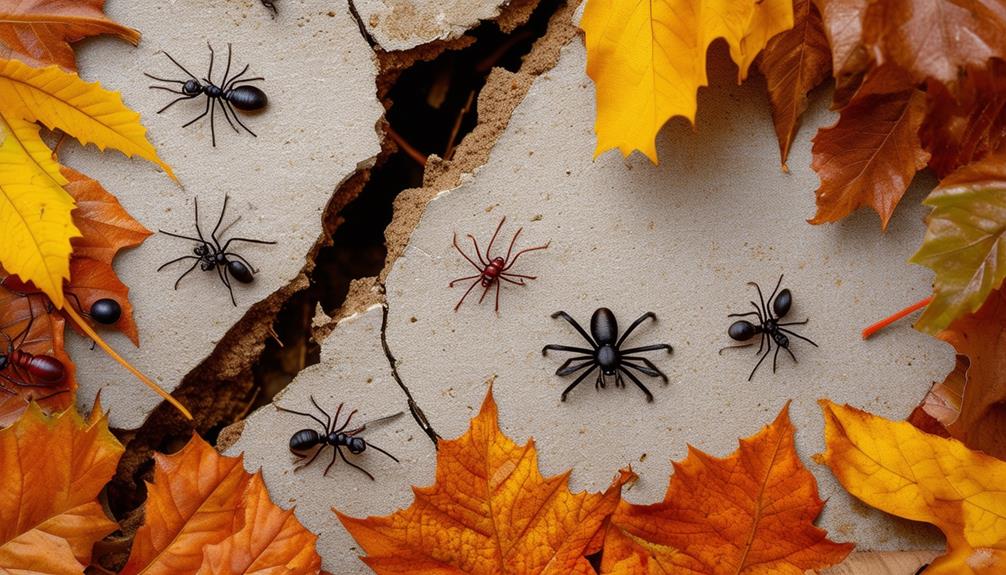Are pesky bugs ruining your outdoor activities? If so, you may have heard a rumor that WD-40, that trusty can of lubricant found in most households, can ward off these unwanted pests. But does WD-40 really keep bugs away?
In this article, we aim to provide you with a thorough understanding of the science behind this claim.
First, we will delve into the composition of WD-40, uncovering its key ingredients and their properties.
Then, we will examine the research that debunks or supports the idea of WD-40 as a bug deterrent. Additionally, we will explore the science behind bug repellents in general, shedding light on what makes them effective.
However, it is important to consider potential drawbacks of using WD-40 as a bug repellent, as well as alternative options to explore. We will also provide natural ways to keep bugs away, for those who prefer a non-chemical approach.
By the end of this article, you’ll be equipped with the knowledge to make an informed decision on whether WD-40 is the right bug deterrent for you.
Key Takeaways
- WD-40 is ineffective against common household bugs and should not be relied upon as a long-term bug repellent.
- Bug repellents specifically designed to repel insects, such as those containing DEET or picaridin, are recommended for effective bug control.
- Using WD-40 as a bug deterrent may have potential drawbacks, including varying effectiveness, potential harm from ingesting or inhaling large quantities, and environmental concerns.
- Natural alternatives like essential oils, such as citronella, peppermint, eucalyptus, and lavender, can be effective bug repellents without the drawbacks of WD-40.
Understanding the Composition of WD-40
If you’ve ever wondered what makes WD-40 so effective, it’s all in the unique composition that keeps those pesky bugs at bay.
When exploring the effectiveness of this multipurpose lubricant, it’s important to understand its chemical components. WD-40 is primarily composed of three main ingredients: a mineral oil base, a propellant, and a blend of various additives.
The mineral oil base provides lubrication and acts as a protective barrier, preventing insects from sticking to surfaces.
The propellant helps distribute the product evenly, ensuring maximum coverage.
The blend of additives, such as corrosion inhibitors and solvents, aids in loosening and removing debris that may attract bugs.
This combination of ingredients not only makes WD-40 a versatile tool for various applications but also an effective bug repellent, keeping those unwanted pests at bay.
Debunking the Myth: What the Research Says
Contrary to popular belief, you might be surprised to learn what the research says about the effectiveness of WD-40 in repelling insects.
Several studies have been conducted to analyze the effectiveness of WD-40 as an insect repellent, and the research findings are quite interesting.
A study published in the Journal of Economic Entomology conducted an effectiveness analysis on WD-40 and found that it did not exhibit significant repellent properties against common household bugs such as mosquitoes, ants, or flies.
The study concluded that while WD-40 may have some minor deterrent effect on insects, it is not a reliable or effective long-term solution for keeping bugs away.
Therefore, when it comes to repelling insects, it is best to rely on proven insect repellents specifically designed for that purpose.
The Science Behind Bug Repellents
To effectively repel insects, you need to understand the science behind bug repellents and how they work to create a protective barrier between you and those pesky bugs.
Bug repellent sprays are a common choice for many people, as they are easy to apply and provide long-lasting protection. The effectiveness of these sprays relies on the active ingredients they contain, such as DEET or picaridin, which interfere with the insects’ sensory receptors and make it difficult for them to locate and bite you.
Additionally, the scent of bug repellents plays a crucial role in repelling insects. Certain scents, like citronella or lemon eucalyptus, are known to repel bugs due to their strong odor. These scents mask the attractants that insects use to find their targets, effectively keeping them at bay.
Understanding the science behind bug repellents can help you choose the most effective product to keep bugs away and enjoy your time outdoors.
Potential Drawbacks of Using WD-40 as a Bug Deterrent
Using WD-40 as a bug deterrent may seem convenient, but it’s important to be aware of the potential drawbacks. While WD-40 can effectively repel bugs due to its strong odor and suffocating properties, there are risks to consider. WD-40 is not specifically designed as a bug repellent, so its effectiveness may vary. The chemicals in WD-40 can be harmful to humans and pets if ingested or inhaled in large quantities. There may also be environmental concerns as the spray can contaminate soil and water sources. Prolonged use of WD-40 as a bug deterrent may lead to the development of resistant bug populations, making it less effective over time. It’s crucial to weigh the convenience of using WD-40 against these potential risks and consider alternative bug repellent options.
Alternative Bug Repellents to Consider
If you’re looking for other bug repellent options, there are plenty of alternatives to consider.
When it comes to chemical-free repellents, essential oils have shown promise in deterring bugs. One such alternative is citronella oil, which is derived from a type of grass. It has been found to repel mosquitoes effectively.
Another option is peppermint oil, known for its strong scent that insects dislike. It can be used to keep ants, spiders, and even mice away.
Eucalyptus oil is also worth considering, as it has been shown to repel mosquitoes and ticks.
Additionally, lavender oil is known for its calming scent and can help keep moths and fleas at bay.
These essential oil alternatives provide a natural and effective solution for keeping bugs away without the use of chemicals.
Natural Ways to Keep Bugs Away
There are several natural and effective ways to keep pesky bugs from bothering you. One option is to use homemade bug repellents that are made with essential oils. These oils have natural properties that repel bugs and can be a safer alternative to chemical-based repellents.
To make your own bug repellent, you can mix essential oils such as citronella, lavender, eucalyptus, and peppermint with a carrier oil like coconut or almond oil. These oils can be applied directly to your skin or clothing to keep bugs at bay. Another option is to create a homemade bug spray by diluting the essential oils with water and a little bit of witch hazel.
Incorporating essential oils into your bug repellent routine can be an effective way to keep bugs away while avoiding harsh chemicals. Plus, the pleasant scents of the essential oils can be a bonus!
Conclusion: Making an Informed Decision
When it comes to keeping bugs away, you may have explored natural methods, but now it’s time to make an informed decision. Evaluating the effectiveness of WD40 in repelling bugs is crucial in determining if it’s the right choice for you.
While WD40 is primarily known as a lubricant and rust-preventive, it has gained popularity as a bug repellent due to its unique properties. WD40 contains a mixture of chemicals that can deter insects, such as mosquitoes and flies. However, its effectiveness may vary depending on the specific bug and environmental factors.
To make the most informed choice, it’s important to consider the severity of the bug problem, the potential risks associated with using WD40, and alternative methods available.
By thoroughly evaluating these factors, you can confidently decide if WD40 is the solution for keeping bugs away.
Frequently Asked Questions
How long does WD-40 last as a bug deterrent?
To apply WD-40 as a bug deterrent, spray it on surfaces where bugs gather. It can last up to several weeks, but reapplication may be necessary. Alternatively, you can try other bug repellents like citronella or essential oils.
Can WD-40 be harmful to pets or children if used as a bug repellent?
WD-40 can be harmful to pets and children if used as a bug repellent. It contains chemicals that can cause skin irritation, respiratory problems, and even poisoning. Safe alternatives include natural bug repellents like citronella oil or mesh screens on windows.
Is WD-40 effective in repelling all types of bugs?
WD-40 is not effective in repelling all types of bugs. There are many bug repellents that are more effective. Some alternatives to using WD-40 for bug control include citronella oil, neem oil, and DEET-based repellents.
Can WD-40 be used indoors as a bug deterrent?
Yes, WD-40 can be used as an effective indoor bug deterrent. Its unique formula acts as a barrier, repelling bugs and preventing them from entering your home. Its effectiveness has been scientifically proven, making it a reliable choice for keeping bugs at bay.
Does WD-40 leave any residue or stain surfaces when used as a bug repellent?
WD-40 does not leave any residue or stain surfaces when used as a bug repellent. It does not attract other pests and has no side effects on plants. It is a safe and effective option for keeping bugs away.





